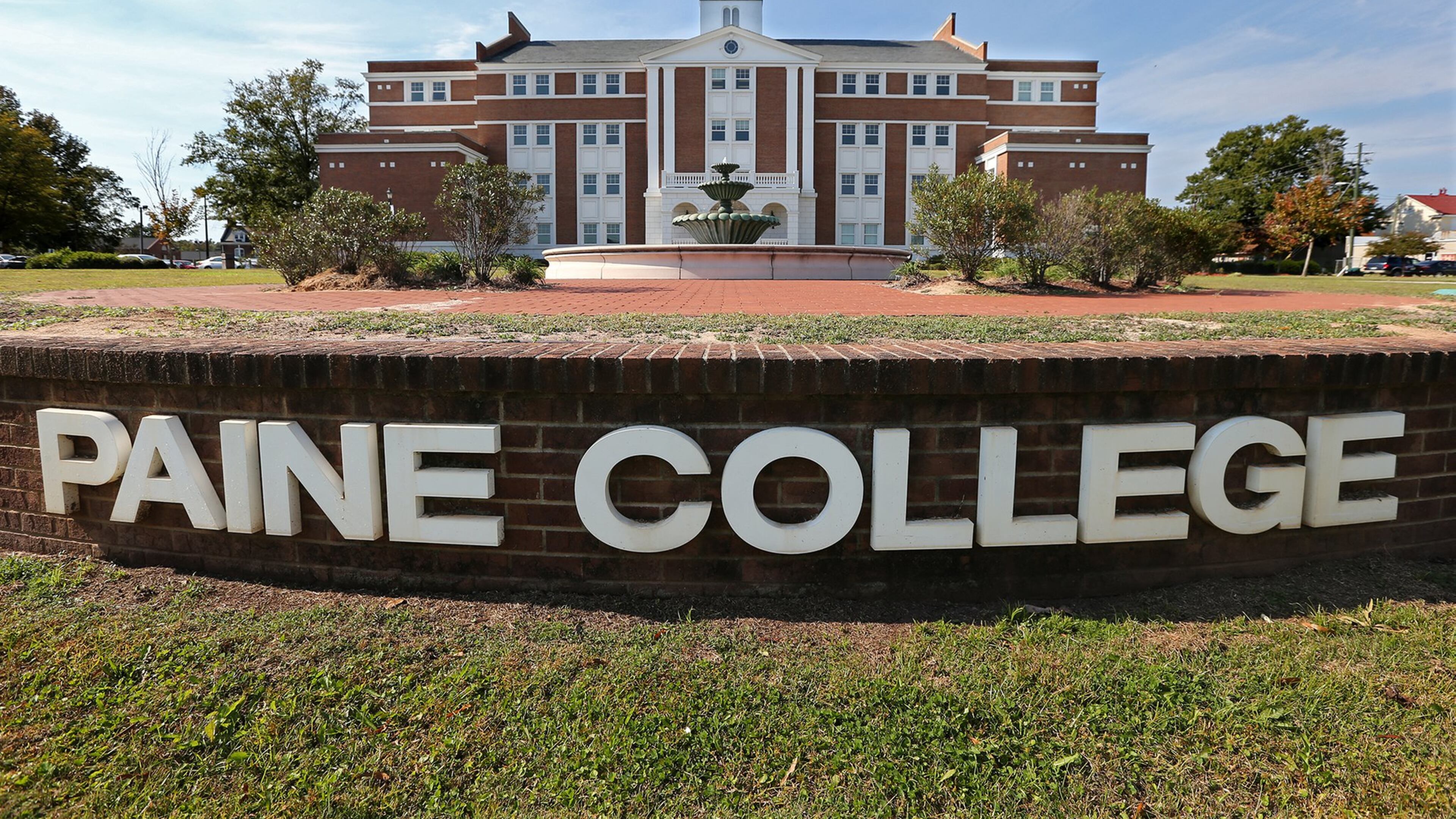Paine College leaders hope $2.2 million grant will help its transformation

Christian Methodist Episcopal Church Bishop Thomas L. Brown Sr. was part of a group of Paine College supporters who toured the Augusta campus with potential partners last fall in hopes of getting grant money for the historically Black school.
Last week, the college announced it received a $2.25 million grant from the National Park Service that will be used to restore and preserve three structures on campus. It’s believed to be the largest federal grant to the college in about a decade.
The funding comes at a critical time. Paine College last year launched a 10-year campaign to improve the school’s buildings, enroll more students and provide greater support to its faculty. The school has been in recovery mode after it nearly lost its accreditation in 2016 from the Southern Association of Colleges and Schools. The association cited low enrollment and finances as the reason. Paine sued back, and eventually gained its accreditation in 2021 from the Transnational Association of Christian Colleges.
“We, hopefully, are poised to move to a brand-new level,” Brown, who is chair-elect of Paine’s Board of Trustees, said in an interview. Brown’s daughter is a Paine graduate.

Paine was founded in 1882 by Methodist church leaders, Black and white, with donations — including pennies from former slaves. Paine had 922 students in 2014 when SACS put the college on probation. Paine last school year had 344 students, which supporters hope to double over the next decade. The grant funding, they say, will help improve campus facilities to provide more housing for students.
“This is a significant milestone in the history of the college. This gives us the opportunity to work towards upgrading facilities to create improved spaces for students’ living and learning environments,” the college’s president, Cheryl Evans Jones, said in a statement.

The college will use $750,000 from the grant to address excessive moisture and needed structural repairs in Epworth Residential Hall, which was constructed in 1925. Belle-Bennett Residential Hall, built in 1962, will receive extensive restoration and conservation of interior elements with nearly $750,000 in grant funding. Funding will underwrite the restoration of Peters Campus Center, which houses the cafeteria, offices, student lounge and recreation areas. The grant award will also address federal Americans with Disabilities Act accommodations and accessibility for students, staff and visitors in all three buildings. Paine leaders credited Georgia’s two U.S. senators, Jon Ossoff and the Rev. Raphael Warnock, for helping to secure the funding.
“They came through for us,” said DeKalb County CEO Michael Thurmond, a Paine alum and its board chair.

Paine, like many historically Black colleges and universities, has been underfunded over the years in comparison to schools with majority-white enrollments, according to news reports and research. The funding gap, HBCU supporters note, has resulted in less money to repair aging buildings on their campuses. Georgia has 10 HBCUs. Last fall, attorneys filed a lawsuit against the Georgia Board of Regents alleging the state failed to equitably fund its three public historically Black universities. (Paine, a private HBCU, was not involved in the case.) The lawsuit was recently dismissed as attorneys said they wanted to conduct additional research of similar cases and to add more potential plaintiffs.
Brown says the college needs to boost its enrollment through online courses and must provide more support to its 23 full-time faculty members to help them conduct more research. He added the college is aiming to recruit more students interested in medical and business careers.
“The days we live in now require us to diversify our educational programs and how we deliver them,” he said.

Thurmond, like many who fought for Paine’s survival, is optimistic the grant will begin a brighter chapter in the college’s history.
“All of it will make Paine competitive with the best and the brightest,” he said.



